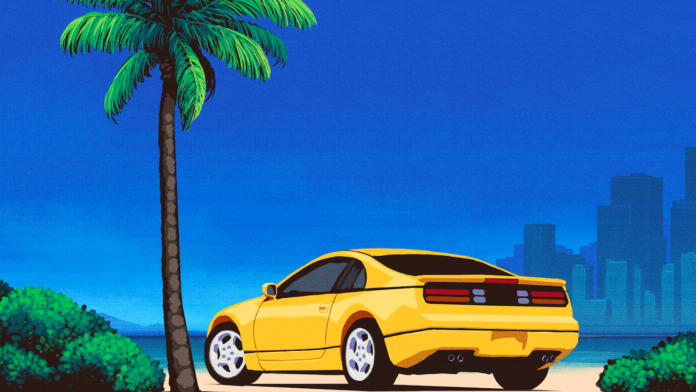As far back as solo developer Sandro Luiz de Paula (aka ansdor) can remember he always wanted to be a game developer. Growing up in a small town in Brazil and without any contacts or network in the gamesindustry, his only option was to go solo. But that didn’t discourage him at all: “I wouldn’t feel comfortable working on a game if I had to just follow someone else’s ideas.” It’s the total creative control that drives him. “Solo developed games have much more room to be experimental and weird, and I love that.”
Ansdor’s game Slipstream, an OutRun-inspired arcade racer, gets a final, free expansion and then it’s time to move on. “In 2024 it will be 10 years since I wrote the first lines of code and I never planned to spend more than 2 or 3 years on it!” And while he’s preparing to take on a completely different genre for his next game, ansdor stresses the importance of looking after your mental wellbeing. “I have anxiety disorder and going to the doctor to get proper treatment was a critical step. I wouldn’t have been able to finish my game otherwise.”
Why did you become a solo developer?
“I always wanted to create games. It was the first answer I had as a child to the question ‘what do you want to be when you grow up’? I had some experience with RPG Maker when I was 14, learned the basics of programming and 2D graphics at that time. Then the first wave of really successful indie games appeared on Steam, in the late 00s and early 10s. For the first time it seemed feasible to me. I thought if I practiced enough, I could make 2D games by myself, and so I decided to try it.”
“Besides, Brazil doesn’t have an established games industry like the US and Japan. Only now, in the past 5 years or so, mid-sized game studios are starting to appear in the country. But in the early 10s you either worked with a small team or solo. I lived in a small town and didn’t have the network of contacts to form a team, so solo was the only option for me.”
What are the biggest advantages of working solo?
“There are many advantages. The biggest one for me is total creative control. I wouldn’t feel comfortable working on a game if I had to just follow someone else’s ideas. I also like not having to convince other people, especially management, about a game design decision or artistic choice. Solo developed games have much more room to be experimental and weird, and I love that. And it’s nice to know how the entire assembly line works, you get a feel for every part of the process of making a game and that knowledge is very useful.”
And the biggest pitfalls?
“Some of the pitfalls are well known and well documented. It’s hard to measure the scope of a project early on. Sometimes you only realize the idea was too big to be feasible after sinking months or years of work in it. It’s hard to find funding when you don’t have an established name. The worst of these, in my opinion, is marketing and social media promotion during development and post release. It takes a lot of energy and when you’re deep into the creative process, programming and making art, it’s inhumanly hard to find the time and motivation to promote your game. People who follow indie/solo devs on social media tend to be really nice and positive, but even so it takes a lot of effort.”
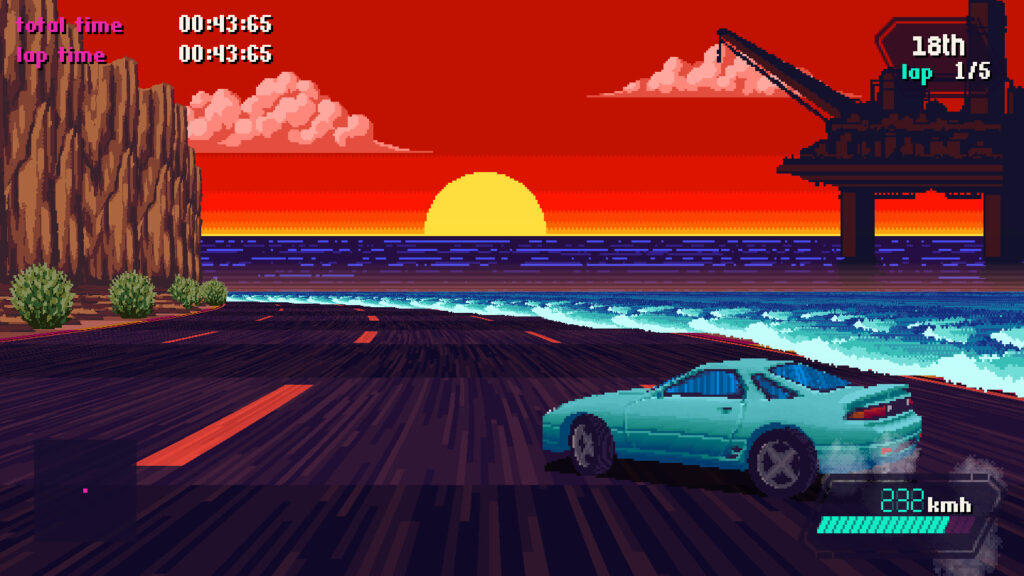
“Besides these well documented ones, the biggest problem I experienced first hand was balancing the game’s difficulty. When you play your game 5-6 hours a day, you inevitably become extremely good at it, and it’s shocking to see other people play it for the first time and discover you made the game too hard. If I could give some advice to me 8 years ago it would be to let other people play the game as early as possible, watch them playing, and take notes of what needs to be made easier or more ergonomic.”
What’s your creative process?
“I like to get my hands dirty as early as possible. I’m not a big fan of too much planning. When I have an idea I consider viable, ideally I go straight to prototyping and develop the game from there. You don’t really know how a game will end up at the beginning, maybe halfway through development you’ll make some radical change, switch genres or add a new gameplay feature you couldn’t see before.”
“I also don’t think much about gameplay or game rules, I don’t even consider myself a ‘game designer’ really. I’m more of an art director. All my ideas begin with the art, images and sounds I want to show to the player. I have a few friends I always consult about my ideas, and they point me to similar games or places where I could draw inspiration from. But most of the time I just create something rough and iterate on it until it’s good enough.”
How do you stay motivated through (years of) development?
“It’s hard! During the development of Slipstream, I had a particularly bad time right after the Kickstarter, in early 2016. I got really close to just giving up. What kept me motivated was the feeling that I owed those people, the Kickstarter backers, a game. If I were to make it in this career, I couldn’t give up on my first bigger project, especially after a successful crowdfunding campaign.”
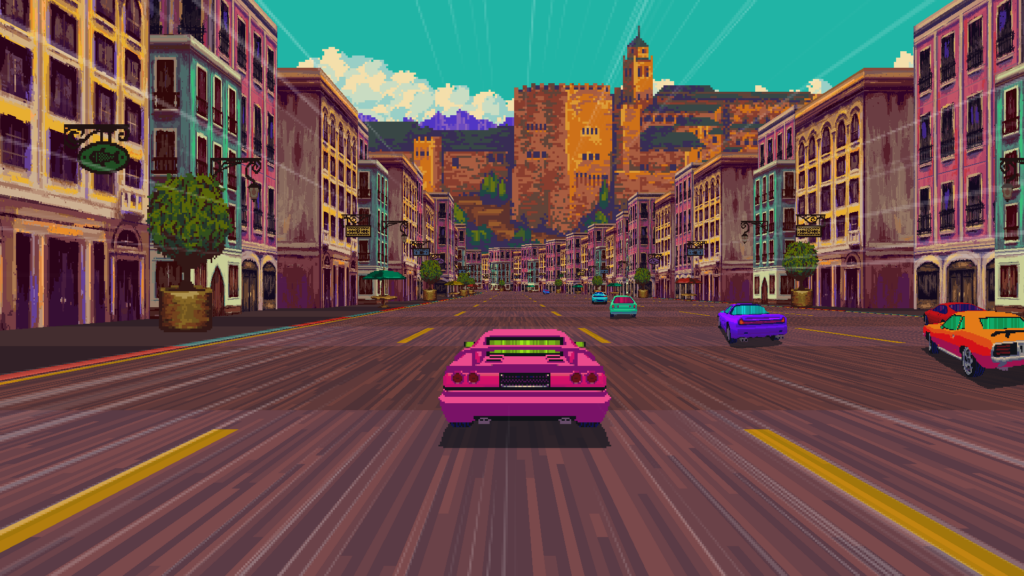
“I also have a hard rule of never working on two projects at the same time. If I start a project, I will only start another when the current one is either finished or abandoned forever. If I didn’t follow this rule, I’d probably have 50 unfinished games and not a single published one.”
Will you ever work in a team or is it only solo for you?
“I think I would like to work with a team if I had a high-level creative position, like a senior art director. But I haven’t had such an opportunity yet. I’m not a technical specialist, I’m not the best artist or the best programmer, but since I know a little bit of everything I feel I’d be capable of coordinating a team of specialists. I can give them directions to follow to achieve a specific vision or idea for a game.”
Slipstream is already 5 years old. What’s the biggest lesson learned from this project?
“I’ve learned so much from this project that it’s hard to mention a single lesson. It started as my second practice project, a very simple OutRun clone for mobile phones, and now it’s available on consoles with an actual publisher behind and tens of thousands of copies sold. Five years ago I could never expect where I’d be now.”
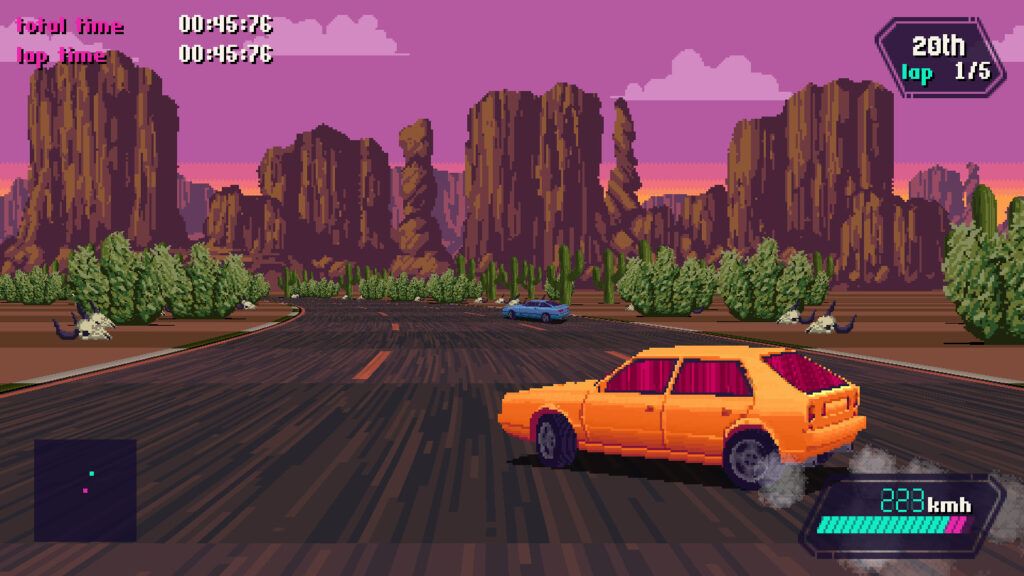
“I think the biggest lesson it taught me was what it actually takes to finish a game. Unfortunately, it’s a lesson I can’t express in words, you can only understand it by direct experience. It’s like a rite of passage. It’s relatively easy to make a cool playable prototype or demo in a few months, but it’s exponentially harder to ship a finished product. As the saying goes, the first 90% of the game takes 90% of development time, and the remaining 10% of the game takes the other 90% of development time. Be prepared for the unexpected, it will inevitably come.”
What are your next plans now?
“I’m done with Slipstream. I never had planned to spend more than 2 or 3 years on it, and in 2024 it will be 10 years since the first lines of code were written. I think I did everything I could with that game, and it’s time to move on.”
“I want to start a new project in an entirely different genre. Now I know how long development can take, so I’m preparing for another decade-long journey, with a project that’s rich and complex enough to keep me entertained for that long. I hope I have something to show by mid-2024.”
The toll on your mental health can be quite high as a solo developer. How do you deal with that?
“I think solo developers suffer from this in a particularly harsh way. Your game is like an extension of you, you take every criticism very, very personally. You feel like your worth as a person is tied to that work. When you’re on a team, even a small one, having other people to share the burden and talk about it constructively makes everything a lot easier. I didn’t have a team for a long time, but now I have a publisher which helps me a lot with this.”
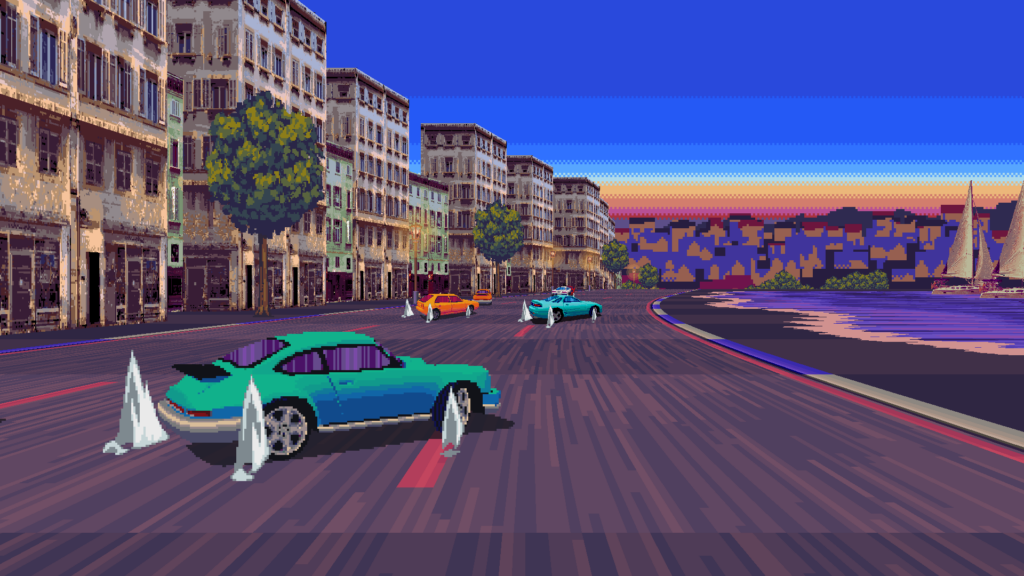
“Instead of ‘oh no, people hate the game so people hate me. I’m a worthless human being’, I can talk about ways to improve or fix the perceived problems, and get encouragement from the positive feedback. I have anxiety disorder and I have been taking medication for it since 2017. Going to the doctor and getting proper treatment was a critical step. I wouldn’t have finished the game if I wasn’t treating my mental health issues.”
Slipstream is available on Steam, Xbox, PlayStation and Switch.

